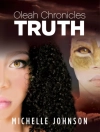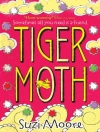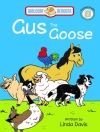The oldest relationships in history have been between man and woman.
So what would be much different than finding out that these continue to explore and resolve (mis)understandings out on remote planets through out our solar system and beyond?
After all, it’s not like we got things all sorted out on Earth.
Still, in the middle of an adventure, things do get exciting.
Sample these authors from the heady days of Golden Era Space Opera and see if they didn’t get it right – or would you do different in those situations?
Space Opera is a subgenre of science fiction that emphasizes space warfare, melodramatic adventure, interplanetary battles, chivalric romance, and risk-taking. Set mainly or entirely in outer space, it usually involves conflict between opponents possessing advanced abilities, futuristic weapons, and other sophisticated technology.
The term has no relation to music, as in a traditional opera, but is instead a play on the terms ‘soap opera’, a melodramatic television series, and ‘horse opera’, which was coined during the 1930s to indicate a formulaic Western movie. Space operas emerged in the 1930s and continue to be produced in literature, film, comics, television, and video games.
The Golden Age of Pulp Magazine Fiction derives from pulp magazines (often referred to as ‘the pulps’) as they were inexpensive fiction magazines that were published from 1896 to the late 1950s. The term pulp derives from the cheap wood pulp paper on which the magazines were printed. In contrast, magazines printed on higher-quality paper were called ‘glossies’ or ‘slicks’. (Wikipedia)
The pulps gave rise to the term pulp fiction. Pulps were the successors to the penny dreadfuls, dime novels, and short-fiction magazines of the 19th century. Although many writers wrote for pulps, the magazines were proving grounds for those authors like Robert Heinlein, Louis La Mour, ‘Max Brand’, Ray Bradbury, Philip K. Dick, and many others. The best writers moved onto longer fiction required by paperback publishers. Many of these authors have never been out of print, even long after their passing.
Anthology containing:
- The Birds and the Bees by David E. Fisher
- Until Life Do Us Part by Winston K. Marks
- Miracle by Price by Irving E. Cox
- Bargain Basement by Charles L. Fontenay
- Friend Island by Francis Stevens
- After Some Tomorrow by Mack Reynolds
- A Husband for My Wife by William W. Stuart
- Beyond Light by Nelson S. Bond
- Venus is a Man’s World by William Tenn
- Thy Name Is Woman by Bryce Walton
- Matchmaker by Charles L. Fontenay
- Chimera World by Wilbur S. Peacock
- Sentiment, Inc. by Poul Anderson
- Bodyguard by H. L. Gold
- Sargasso of Lost Starships by Poul Anderson
Scroll Up and Get Your Copy Now












